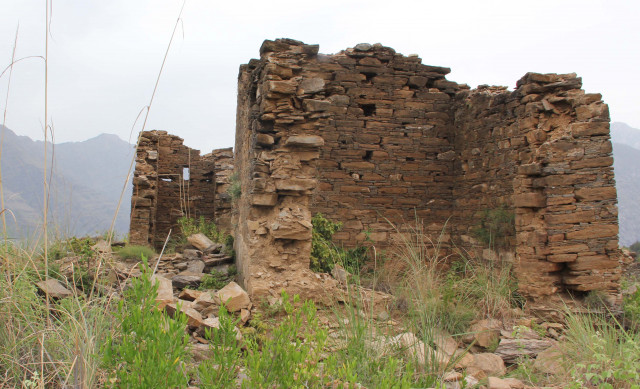K-P plans to explore religious tourism
Province expects the return of more than 3,000 artefacts from Karachi and Islamabad

According to archaeological experts, Kanderai in K-P has the potential to reveal Swat’s ancient association with Buddhism, religious tourism and great eras such as the reign of Emperor Asoka. (PHOTO: FAZAL KHALIQ /EXPRESS)
Now, as part of Prime Minister Imran Khan’s vision to promote tourism in the country, the Khyber-Pakhtunkhwa government wants to turn the province into the historic centerpiece of the ambitious project.
To begin with, the province’s archaeological authorities want to repatriate more than 3,000 priceless historical artifacts that are currently on display in museums in Karachi and Islamabad. The provincial government also wants to explore the as yet untapped sector of religious tourism to turn Khyber-Pakhtunkhwa into a magnet for devotees from various faiths.
“There are no Buddhist sites in Karachi. Hence there is no point displaying these relics at museums in Karachi,” said Director Archaeology Dr Abdul Samad
With the Pakistan Tehreek-e-Insaaf at the helm, both in the centre and the province, experts believe, the return of these relics looks easier than it did five years ago.
“In the past, the federal government was not supportive, and would routinely block provincial plans to upgrade its attractions,” said an official speaking on the condition of anonymity.
“They routinely blocked all NOC for foreign travelers to the province,” he added.
Religious tourism
Previously, due to the war on terrorism and the volatile situation, the federal government restricted foreigners from traveling to K-P.
The protracted battle against insurgents had many casualties, including tourism, specifically in Swat which not only attracts tourists towards the scenic natural beauty but also draws religious tourists to sacred Buddhist sites. The federal restrictions were relaxed following a military operation against militants.
Free from federal restrictions and the threat of terrorism, the provincial government has shifted its focus on reviving K-P’s reputation as the hub of heritage and religious sites. It has also given the green light to the archaeological department to explore more than 100 new sites across the province.
Optimistic that the province will regain its lost glory, provincial authorities believe, K-P has the potential of attracting tourists from predominantly Buddhist countries in East Asia.
“The newly discovered tourist spots in district Dir, Malakand, Chitral, and other merged tribal areas, will change the destiny of the province,” predicted one official. Commenting on the state of tourism in the province, Director Archaeology, Dr Abdul Samad said: “Peshawar, Mardan, Malakand, Abbottabad, and Khanpur attracted a large number of religious tourists.”
Dozens of unexplored religious sites dot the newly merged tribal areas. If explored, Dr Samad believes they could attract visitors from all over the world.
“This could have a huge impact on the provincial economy and the image of the country,” he said.
Citing the recent visit by a delegation of Buddhist monks from South Korea, Dr Samad said the province has a huge potential for attracting religious tourism.
“We have the potential of attracting millions of religious tourists every year if we explore our sites,” he added.
Published in The Express Tribune, September 24th, 2019.












COMMENTS
Comments are moderated and generally will be posted if they are on-topic and not abusive.
For more information, please see our Comments FAQ